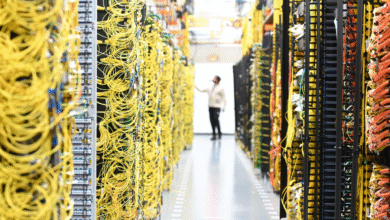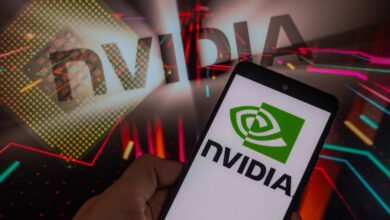$1B in Nvidia AI Chips Illegally Smuggled to China Post-Export Ban

▼ Summary
– At least $1 billion worth of Nvidia’s restricted AI chips were shipped to China after Trump tightened export controls, revealing gaps in US efforts to limit China’s tech growth.
– Nvidia’s B200 chip, banned for sale to China, became highly sought-after in a Chinese black market for US semiconductors.
– Chinese distributors sold B200s and other restricted chips like the H100 and H200 to data centers serving AI groups shortly after Trump’s new restrictions.
– While receiving and selling restricted Nvidia chips in China is legal if tariffs are paid, entities exporting them violate US regulations.
– Nvidia denies involvement in or knowledge of restricted chips being sold to China, despite evidence of widespread black market activity.
Over $1 billion worth of Nvidia’s cutting-edge AI chips were illegally smuggled into China following tightened U.S. export restrictions, according to an in-depth investigation. The findings highlight significant challenges in enforcing trade bans aimed at limiting China’s access to critical high-performance computing technology.
A detailed review of sales records, corporate disclosures, and insider accounts reveals that Nvidia’s B200 processors, banned for export to China, have flooded the country’s underground semiconductor market. These chips, essential for training advanced AI models, are widely used by leading U.S. firms like OpenAI and Google but remain off-limits to Chinese buyers under U.S. regulations.
Shortly after the Trump administration reinforced export controls in May, Chinese distributors began offering B200s to data center operators supporting local AI developers. The surge in black-market activity coincided with efforts to block sales of Nvidia’s H20, a less powerful chip designed to comply with earlier Biden-era restrictions.
While purchasing restricted chips in China isn’t illegal if import duties are paid, suppliers shipping them from the U.S. violate federal trade laws. Legal experts confirm that enforcement focuses on exporters rather than end buyers.
Last week, Nvidia CEO Jensen Huang announced the resumption of H20 sales to China after regulatory adjustments. However, in the preceding three months, distributors across Guangdong, Zhejiang, and Anhui provinces sold not only B200s but also restricted models like the H100 and H200. Documents and sources estimate these transactions exceeded $1 billion in total value.
Nvidia maintains there is “no evidence” of diverted AI chips reaching prohibited markets and denies involvement in or awareness of unauthorized sales. The company emphasizes compliance with export laws, but the scale of illicit trade underscores persistent gaps in controlling the flow of sensitive technology.
The situation reflects broader tensions as the U.S. seeks to curb China’s AI advancements while facing difficulties in fully restricting access to high-demand semiconductors. With demand far outstripping supply, enforcement remains an ongoing challenge for regulators.
(Source: Ars Technica)





